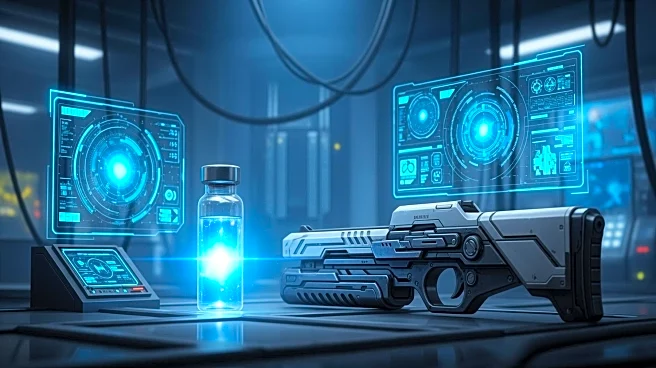What's Happening?
Capcom is reportedly planning a remake of Resident Evil Zero, targeting a release in 2028. This follows previous reports that Capcom would continue remaking its classic Resident Evil titles, including
Resident Evil Code Veronica. The remake is expected to add new scenes to the original game's story, expanding the role of the conductor in the train sequence. The project, codenamed 'Project Chamber,' features Jon McLaren, known for his role in Square Enix's Guardians of the Galaxy video game, providing performance capture. Meanwhile, Capcom is preparing for the launch of Resident Evil Requiem on February 27, 2026, to celebrate the franchise's 30th anniversary.
Why It's Important?
The remake of Resident Evil Zero signifies Capcom's ongoing strategy to revitalize its classic titles, potentially attracting both new players and long-time fans. By incorporating new scenes and expanding character roles, Capcom aims to enhance the gaming experience and maintain the franchise's relevance in the competitive gaming industry. The involvement of a notable actor like Jon McLaren could further boost interest and anticipation. Additionally, the upcoming release of Resident Evil Requiem highlights Capcom's commitment to celebrating the franchise's legacy, which could strengthen brand loyalty and drive sales.
What's Next?
Fans can expect further announcements and details about the Resident Evil Zero remake as development progresses. Capcom's strategy of remaking classic titles may continue, potentially leading to more remakes in the future. The gaming community will likely keep a close watch on Capcom's developments, especially with the upcoming Resident Evil Requiem release. Stakeholders, including gamers and industry analysts, will be interested in how these projects impact Capcom's market position and financial performance.
Beyond the Headlines
The decision to remake Resident Evil Zero could influence other gaming companies to revisit their classic titles, potentially leading to a trend of remakes in the industry. This approach raises questions about innovation versus nostalgia in game development. Additionally, the expanded role of characters in remakes may set new standards for storytelling in video games, emphasizing character development and narrative depth.











